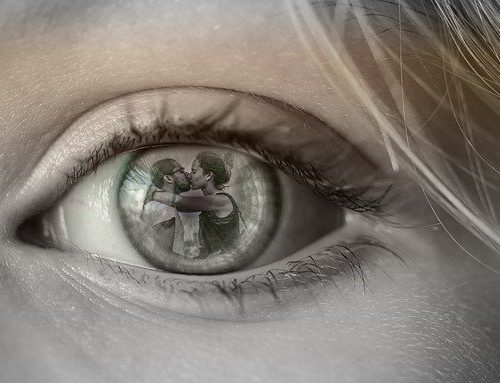 If your first bonds were strong and supportive, you have the tools you need to create strong and supportive connections with the people in your adult life, particularly with your partner. As a baby you learned that your cries for attention were answered effectively and with love. You carry that pre-language confidence into your adult experiences.If your infancy and childhood were troubled – neglect, abuse, abandonment, or simply your parents’ inability to understand and respond to your infancy and childhood needs – it will be more of a challenge for you to react in a healthy way to your partner’s needs or to express your own.
If your first bonds were strong and supportive, you have the tools you need to create strong and supportive connections with the people in your adult life, particularly with your partner. As a baby you learned that your cries for attention were answered effectively and with love. You carry that pre-language confidence into your adult experiences.If your infancy and childhood were troubled – neglect, abuse, abandonment, or simply your parents’ inability to understand and respond to your infancy and childhood needs – it will be more of a challenge for you to react in a healthy way to your partner’s needs or to express your own.
That disconnect can affect your life in almost every way. You may have trouble making or keeping friends. You may doubt your abilities in school or at work. You may find it difficult to define, even to yourself, how you are feeling and what you need from others in your life. When misfortune enters your life, as it enters almost every life sooner or later, you may find it hard to recover and get on with your life.
And, painfully, you may find it difficult or impossible to identify a partner for life, or to create and maintain a healthy relationship. You may express your difficulty in a number of ways:
- By withdrawing into yourself, refusing to engage in close emotional bonds
- By mistrusting others, fearing they will let you down as your caregiver did when you had no one else to turn to
- By repeating the cycle of approach and avoidance that scarred you in youth
- By taking control of your relationship with anger and resentment, anticipating that your partner will give you reason for those feelings
None of this means you are doomed to a life of isolation and emotional disconnects. If you are motivated to change, attachment disorders can be healed. A skilled therapist can help you make the changes you desire. If you have children, they will also benefit from your improved emotional skills; it is all too easy to pass on the estrangement you were taught by your parents.
Therapy is likely to include:
- Training in recognizing and accepting your feelings
- Exploring the trauma of your past and assisted grieving for the care you were not given as a child
- Practice in the specific skills necessary for a healthy relationship with your partner
- Repeated assurances of your innate value until you are able to hear, accept, and absorb a more positive self-image
You won’t be in it alone, of course. You are a couple and it’s important that your partner be an active participant in changing your relationship for the better. Each of you is in the powerful position of being able to shift the direction of your relationship. The goal of your therapy is to make sure that that shift is toward the positive.
Perhaps the most important part of your therapy will be teaching each of you how to recognize that power and to realize that you can provide the comfort and acknowledgement that all of us need at all stages of life.
Click here for more information on Couples Therapy.




